IPhone can now run Windows! iOS is being forced to accelerate its openness
![]() 07/23 2024
07/23 2024
![]() 681
681

Run Windows 11 on an iPhone? Yes, two seemingly unrelated devices and systems have found a way to merge.
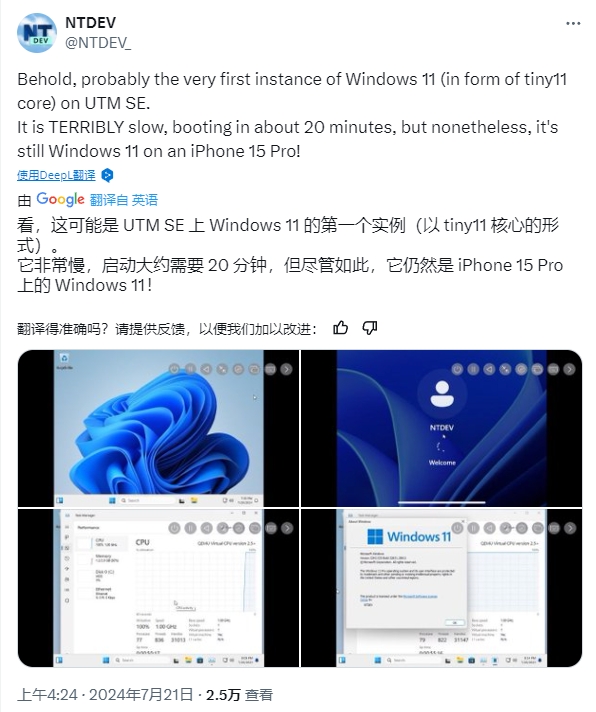
Image source: Twitter
While this seems like an unusual approach from any angle, it represents a further loosening of the iOS ecosystem, and the "Androidization" of iOS seems to go beyond just functionality and experience.
The team behind this feat is the famous overseas system slimming team NTDEV, who successfully ran Windows 11 on the iPhone 15 Pro and can use it normally, opening a new door for those who want to tinker with their iPhones.
Looking at the Windows 11 desktop on an iPhone screen, I was really curious about how NTDEV managed to complete the system installation and what the actual experience was like. So, here's this article.
How did they put Windows on an iPhone?
Attempting to run Windows systems on different phones has always been an annual tradition for geeks, from early Windows Mobile to later Windows Phone, both hotspots for geek tinkering. In addition to Microsoft's custom systems for phones, geeks were also keen on flashing PC systems like Windows XP/7/8 into Android phones, allowing you to experience the fun of trying to identify menu buttons and the power button on a 6-inch screen.

Image source: Twitter
However, except for a few systems that can satisfy the conditions for native installation, most systems are installed and booted through virtual machines or emulators, essentially taking the "shortcut" route.
Before this year, even the "shortcut" method couldn't run Windows on iOS, as the iOS App Store directly rejected all emulator app submissions, naturally not leaving room for emulator apps to run.
But this situation changed recently. Under pressure from the EU, Apple decided to open up third-party app stores and approved the first retro game console emulator for the App Store in April, news that delighted simulator enthusiasts worldwide, as it was the first time a simulator app had been approved since the launch of the iOS App Store.
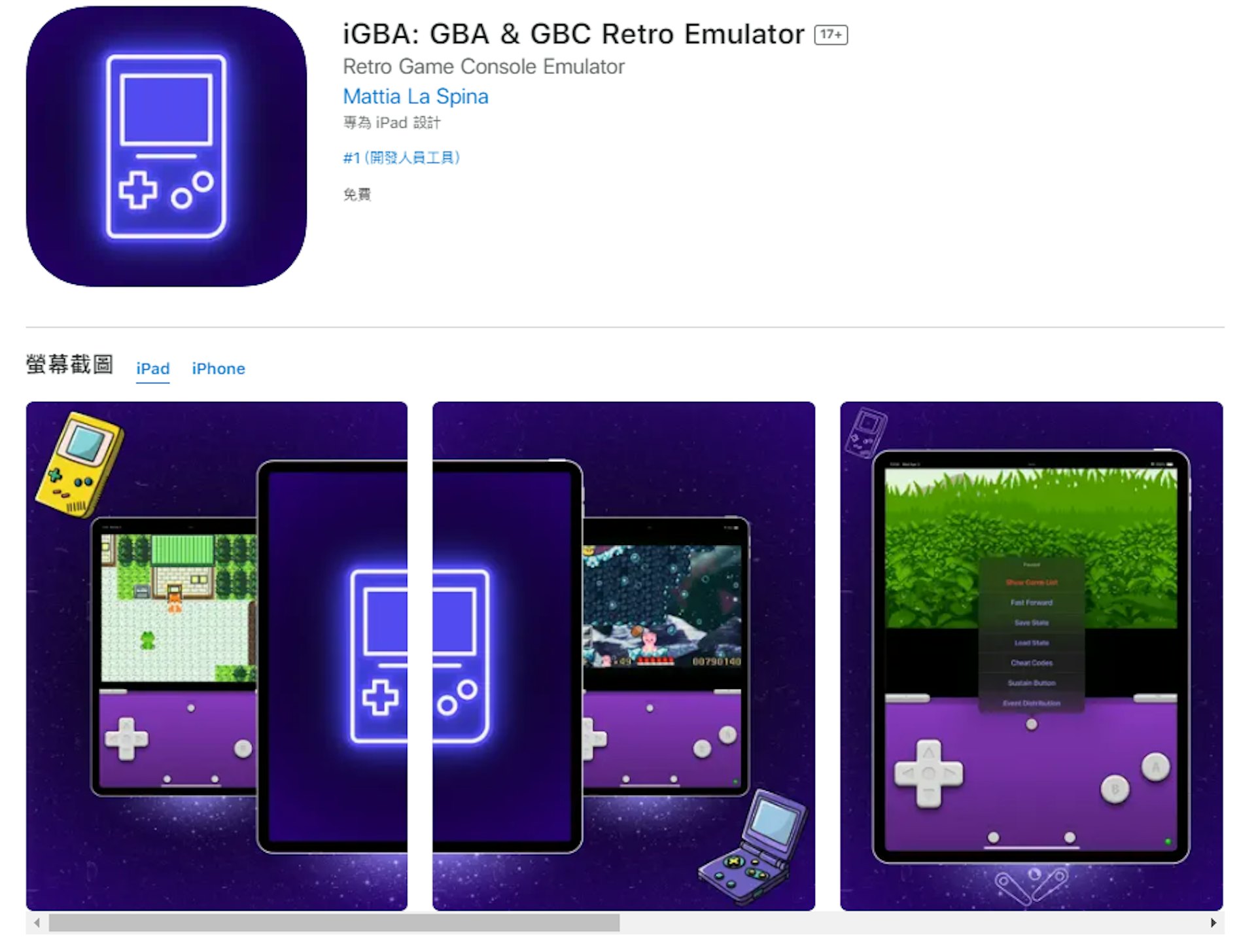
Image source: App Store
With the precedent of IGBA, many emulator authors announced that they had submitted their apps for review. While most emulator app submissions were initially rejected, after secondary compliance modifications, some apps eventually passed, including our protagonist today – UTM SE.
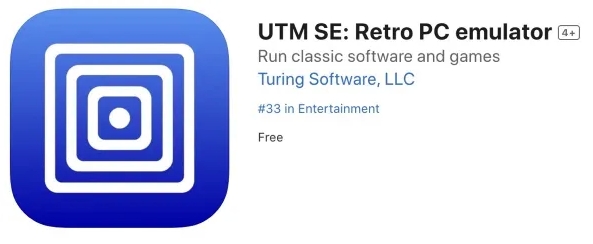
Image source: App Store
Unlike retro game emulator apps, UTM SE is a virtual machine app that runs "older versions of Windows systems." It was initially rejected by Apple for not meeting the condition of "specifically simulating retro game consoles" and for using JIT technology (a feature Apple prohibits third-party apps from calling in iOS), which also caused UTM SE to fail the initial review.
Fortunately, the UTM SE development team didn't give up but chose to collaborate with netizens, bypassing the app's need for JIT technology in a clever way and successfully convincing Apple's review team that UTM SE was a simulator designed to emulate Windows XP and earlier Windows systems, providing a retro experience for players.
However, UTM SE is essentially a virtual machine software, meaning that as long as your system installation package meets the app's operational requirements, it can be installed in UTM SE and booted through the iPhone. Originally, UTM SE limited the system resources available to the app to restrict users from running newer systems, allowing only Windows XP and older versions to run. Installing Windows 11 was basically impossible.
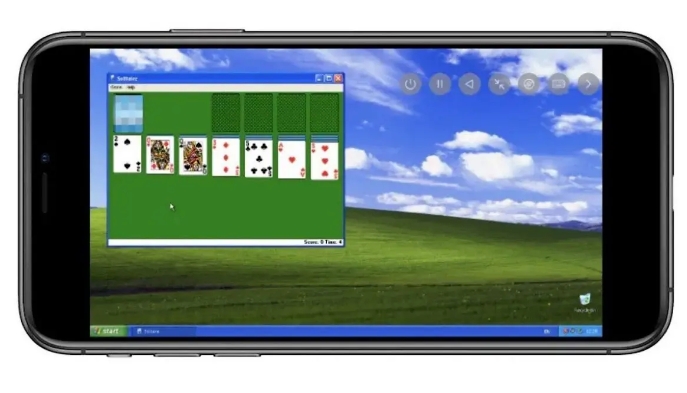
Image source: UTM SE
Windows 11 requires more than 4GB of RAM and 64GB of system space, and it also needs to verify that the TPM 2.0 security module is enabled before installation can begin. Not only does the iPhone not have a TPM 2.0 security module, but 4GB of RAM and 64GB of storage space also exceed UTM SE's resource limits.
However, these limitations didn't stop NTDEV. They created a slimmed-down version of Windows 11 for UTM SE, removing mandatory verification measures like TPM 2.0 and 4GB of RAM, and deleting a large number of unnecessary Windows official programs and applications, reducing the file size after Windows 11 installation from 40GB to under 4GB.
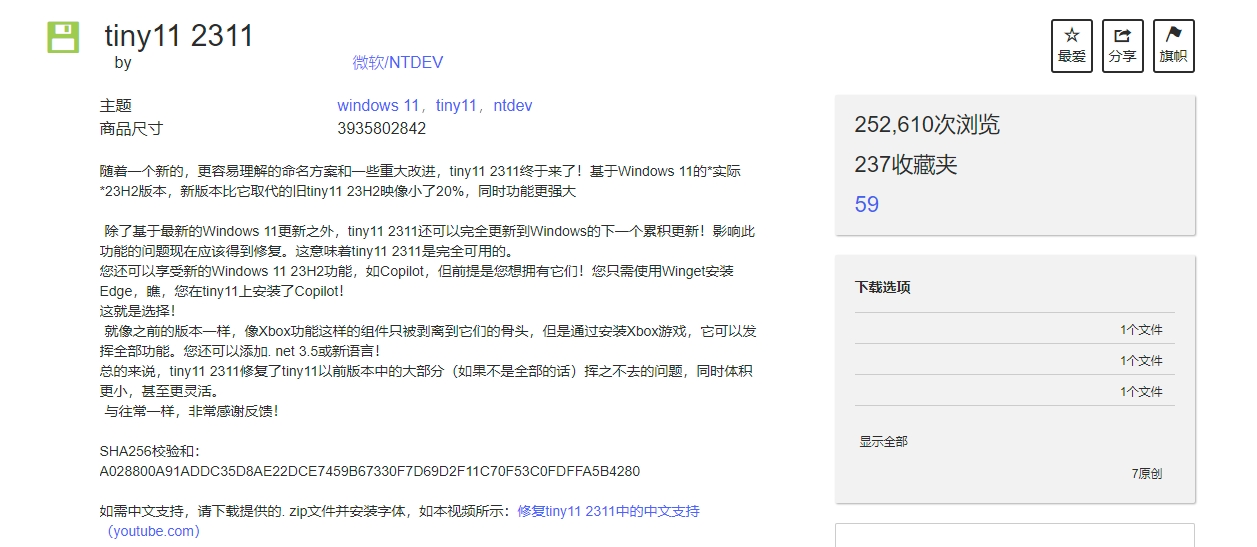
Image source: NTDEV
The slimmed-down Windows 11 finally met UTM SE's operational requirements. NTDEV hasn't released the flashing process, but it should be similar to regular operation procedures and was first successfully booted on the iPhone 15 Pro. However, according to NTDEV, just booting the system took over 20 minutes, with subsequent software usage being poor and system adaptation issues causing the desktop to be forcibly cropped, providing a suboptimal viewing experience.
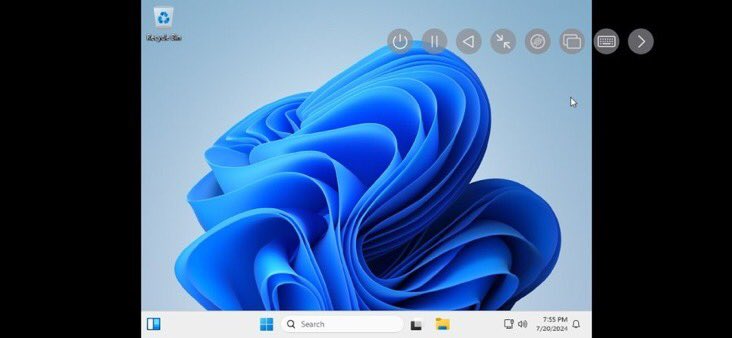
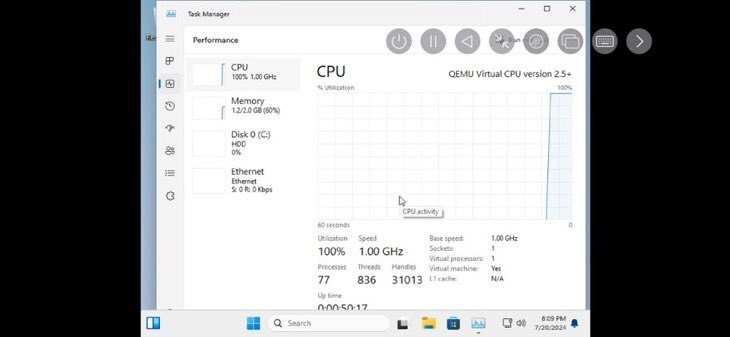
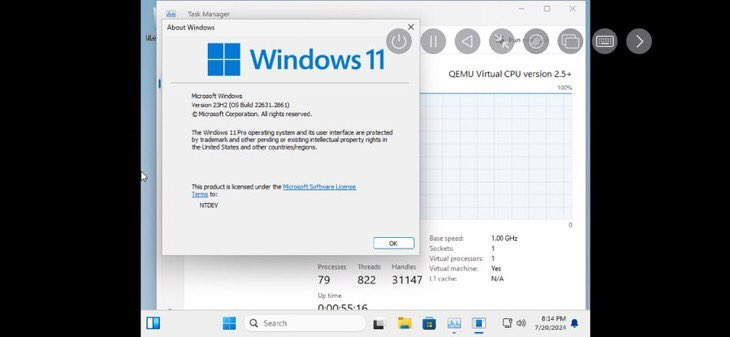
Image source: NTDEV
If Windows XP on UTM SE can still play retro games, Windows 11 is purely for fun, and based on the currently released screenshots, it's basically unusable. However, this successful case gave NTDEV a lot of confidence, and with continued optimization, Windows 11 will eventually run normally on the iPhone.
While there are only a few screenshots at present, NTDEV announced on Twitter that they will upload related testing and installation videos for reference. Interested friends can follow their Twitter account or wait for domestic experts to share the content.
iOS is abandoning its "ancestral laws" and embracing openness
iOS's early success stemmed from its closed nature, with strict restrictions on apps and systems providing a better user experience during the rapid development of smartphones. In an era when Android phones were known for their "one-year minor lag, two-year major lag," iOS's three-year smooth usage was deeply ingrained in people's minds, making the iPhone one of the most popular smartphones.
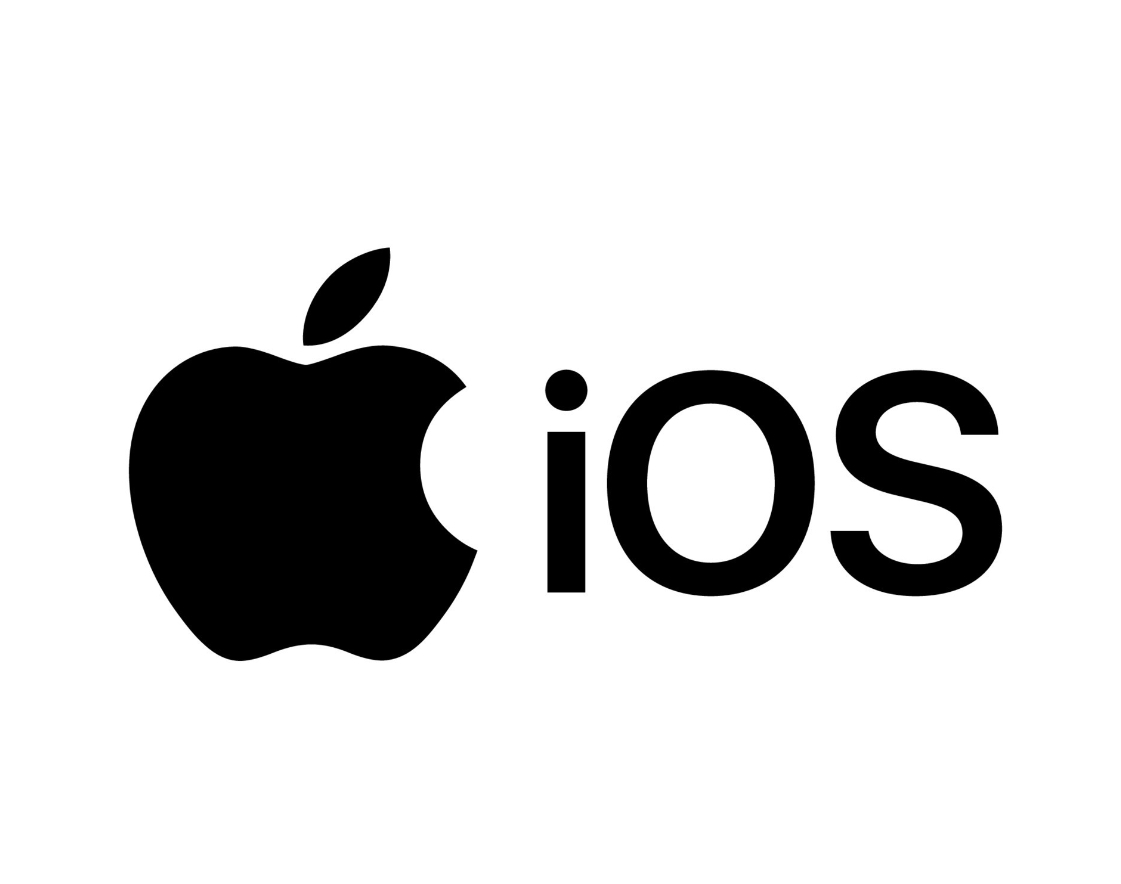
Image source: Apple
However, iOS's closed nature also planted the seeds for subsequent problems.
Monopoly issues topped the list, with Apple facing multiple antitrust investigations in the US and EU, resulting in hefty fines.
iOS's closed nature is also affecting Apple's ecosystem, as some innovative apps cannot be released on the App Store due to iOS restrictions.
With Android's catch-up and surpassing, iOS has lost some of its advantages brought by its closed nature. In terms of system fluency, Android and iOS are now on par. In terms of functionality, Android surpassing iOS is no longer news, and even the newly released iOS 18 has been criticized by many netizens as "increasingly resembling Android."
From Apple's perspective, iOS's closed nature is its foundation, the "ancestral laws," and abandoning them is out of the question. However, times are changing, and iOS must adapt, especially after being fined heavily by Europe and the US. iOS is also forced to embrace openness.
From allowing third-party app stores to approving simulator apps, Apple is trying to improve the system's openness to developers and users without compromising iOS's security. While these measures have not been implemented for long, they have already had numerous impacts on the iOS ecosystem.
Firstly, compatibility with third-party systems, which was almost impossible in the previous iOS environment, is now possible with the support of virtual machine apps. The iPhone can now smoothly run systems like Windows XP, significantly expanding its usage scenarios. While it's often only used for "entertainment purposes," it can also serve as a portable Windows computer when necessary.
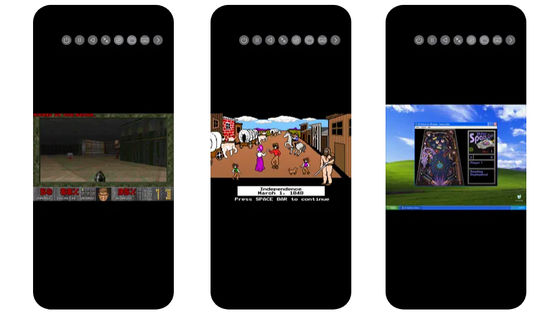
Image source: UTM SE
Secondly, third-party app stores are reducing Apple's control over the iOS ecosystem. While all apps on third-party app stores need to pass Apple's review, they still offer greater freedom, and apps downloaded from third-party app stores don't require paying the "Apple tax," which is attractive to developers who have been demanding lower commissions from Apple and will further reduce Apple's iOS revenue.
"Not as secure," but iOS can't go back
For users, a more open ecosystem can enhance the experience, but it's not all benefits. With Apple's control over the iOS ecosystem weakening, security issues have become a new concern for users. Even with Apple's review as an initial guarantee, it's difficult to track subsequent updates like the App Store, making it challenging to ensure long-term app security.
Therefore, many users call on Apple to maintain its supervision to avoid compromising iOS's security and privacy guarantees, but Apple is unlikely to return to its extremely closed ecosystem.
On the one hand, the sword of Damocles of antitrust looms large, and Apple obviously doesn't want to face tens of billions of dollars in fines again.
On the other hand, ecosystem interoperability is becoming a trend. Domestic companies like OPPO and vivo have started supporting some iOS ecosystem standards in their systems, and Apple's official apps have become better adapted to the Windows ecosystem in recent years. Whether passive or active, iOS is becoming more interconnected with other operating systems.
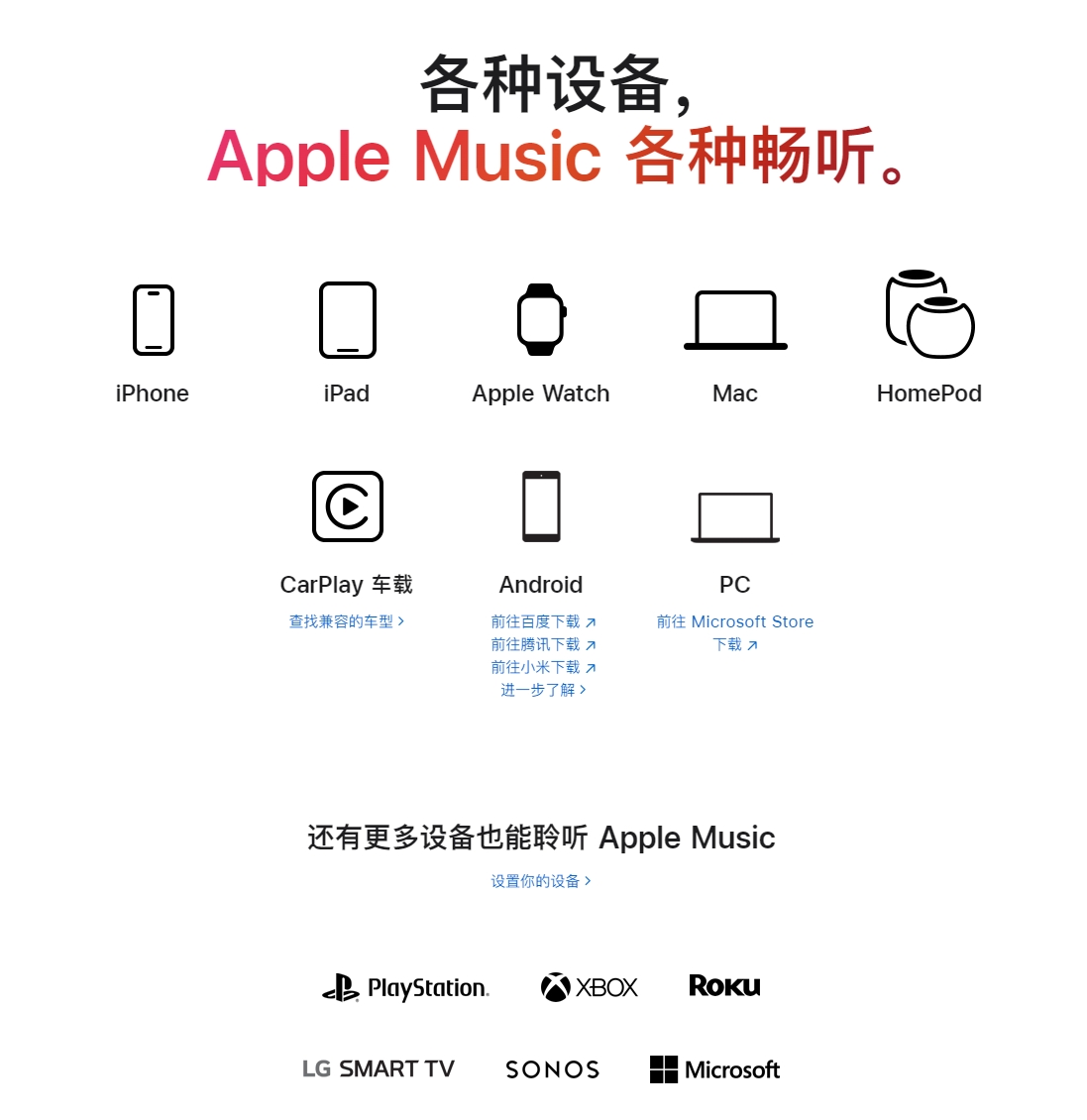
Image source: Apple
Moreover, Apple has gradually shifted its revenue focus to software and content ecosystems in recent years. While third-party app stores have some impact on software revenue, the bulk of profits still comes from the App Store, and Apple is changing its commission strategy to attract more developers.
As for content revenue, Apple TV is becoming one of the most popular media platforms globally, with Apple TV+'s discounted subscription strategy leading to rapid growth in user numbers. With Apple's continued investment in content ecosystems, its market position is also increasing.
The gradual opening up of the iOS ecosystem is inevitable, so while it faces many new challenges, it undoubtedly brings more innovation and possibilities. For Apple, the core is to find a balance between openness and closedness while maintaining system security and user privacy to meet the growing needs of users and developers.
Running Windows 11 on an iPhone will be a new beginning.
Source: LeiTech







